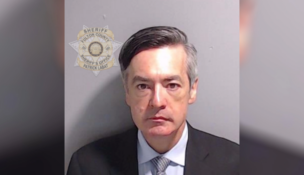Editorial: Making up for lost time
By: WISCONSIN LAW JOURNAL STAFF//October 21, 2013//
When justly convicted Wisconsin inmates are released, they walk out of prison armed with a written plan for re-entering society and the phone number of at least one state employee who will guide them through the transition.
In 2009, Forest Shomberg, who spent 6-½ years in prison on a wrongful conviction, left empty-handed and alone.
Society did not welcome him back.
Though DNA evidence ruled him out as the culprit in the attempted sexual assault for which he had been convicted, Shomberg had 18 previous convictions ranging from misdemeanor theft to felony hit-and-run. His mother, Annette Bruner, said his previous record was a factor in employers’ reluctance to hire him, but she blamed his inability to adapt to freedom as the main reason he was shunned.
With no help from the state, Shomberg struggled for two years post-release, cobbling together odd jobs while looking for full-time work. By 2011, he was suicidal and fired a test shot into the front yard of his home.
A felon in possession of a firearm, he was sentenced to another year in prison.
In the words of Rebecca Brown, an Innocence Project advocate who testified March 1, 2012, before Wisconsin’s Assembly Committee on Judiciary & Ethics: “Institutionalization reaps profound psychological consequences from diminished decision-making capabilities to overwhelming distrust of others to psychological distancing.”
Those consequences occur regardless of whether the inmate was guilty.
A bill seeks to provide the wrongfully incarcerated with services to help them rejoin society. Similar legislation failed in 2012.
State lawmakers must not let this injustice continue. Those guilty of crimes do not deserve better post-release support than those exonerated.
But even if that inequity didn’t exist, Wisconsin would owe more than it is giving to exonerated prisoners. The $5,000 compensation provided for each year spent behind bars on a wrongful conviction is insignificant compared with a year of someone’s life.
A wrongful conviction is the fault of the state; adding exonerated prisoners to the re-entry system is a modest but meaningful way of apologizing. To simply open the doors of a prison cell and dump back on the streets a not-guilty inmate compounds the error.
As cited by Brown in 2012, a study of the psychological effects of wrongful conviction found that more than 75 percent of the sample group experienced enduring personality changes. Two-thirds of those assessed suffered post-traumatic stress disorder.
Shomberg never fully recovered from his years in prison. He was found dead Aug. 5 of a heroin overdose, alone.
Legal News
- Milwaukee’s Common Council now has the most African Americans, women and openly LGBTQ members ever
- Office of School Safety Provides Behavioral and Threat Assessment Management Training Ahead of 25th Anniversary of Columbine Shooting
- Wisconsin Supreme Court to hear arguments in Democratic governor’s suit against GOP-led Legislature
- Lawsuit asks Wisconsin Supreme Court to strike down governor’s 400-year veto
- Wisconsin man pleads not guilty to neglect in disappearance of boy
- ACS Selects University of Wisconsin Law School’s Miriam Seifter for 2024 Ruth Bader Ginsburg Scholar Award
- People with disabilities sue in Wisconsin over lack of electronic absentee ballots
- Wisconsin Republicans ignore governor’s call to spend $125M to combat ‘forever chemicals’
- Native American voices are finally factoring into energy projects
- Steven Avery prosecutor Ken Kratz admits ‘mistakes were made’
- Colombian national extradited to Milwaukee faces International narcotics-trafficking conspiracy charge
- MPD: Milwaukee homicides down nearly 40 percent compared to last year
WLJ People
- Power 30 Personal Injury Attorneys – Russell Nicolet
- Power 30 Personal Injury Attorneys – Benjamin Nicolet
- Power 30 Personal Injury Attorneys – Dustin T. Woehl
- Power 30 Personal Injury Attorneys – Katherine Metzger
- Power 30 Personal Injury Attorneys – Joseph Ryan
- Power 30 Personal Injury Attorneys – James M. Ryan
- Power 30 Personal Injury Attorneys – Dana Wachs
- Power 30 Personal Injury Attorneys – Mark L. Thomsen
- Power 30 Personal Injury Attorneys – Matthew Lein
- Power 30 Personal Injury Attorneys – Jeffrey A. Pitman
- Power 30 Personal Injury Attorneys – William Pemberton
- Power 30 Personal Injury Attorneys – Howard S. Sicula











